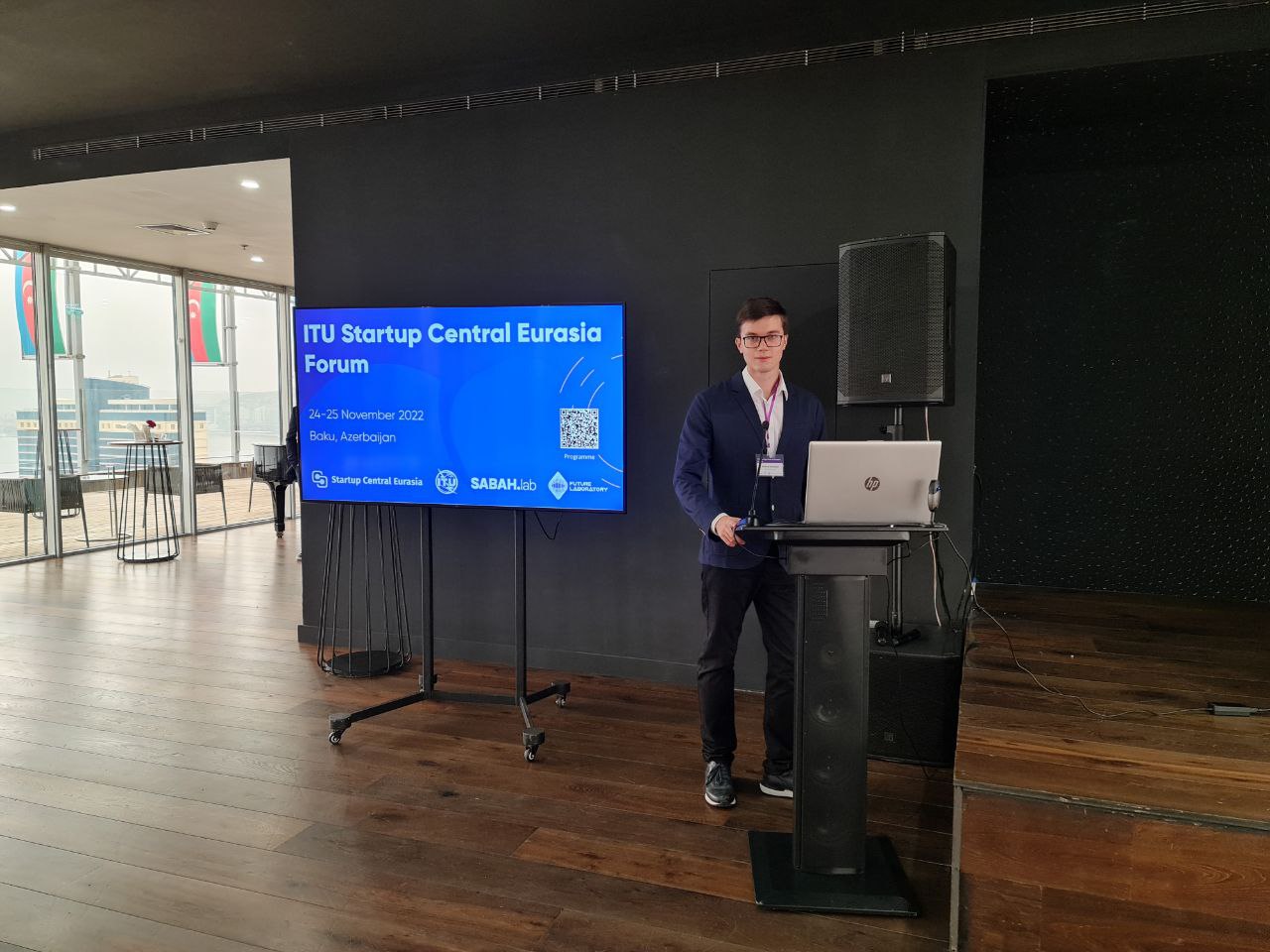You can change your life for the better by taking many paths and overcoming a lot of challenges. Or you can join the Generation Connect Youth Group (GC-CIS) and be empowered all at once.
The GC-CIS Youth Group was created in the context of the ITU Youth Strategy, aiming to involve young people in ITU's work to implement the 2030 Agenda for Sustainable Development. Through this initiative, GC-CIS participants have the opportunity to discuss prospects and challenges related to the development of information and communication technologies and, during high-level events, present the vision of young people in the CIS region on digital transformation and the contribution of ICT technologies to the UN Sustainable Development Goals.
Maxim Buryanov, who represented young people in the CIS region and spoke at the UNICEF High-Level Regional Forum on Sustainable Development as an expert of the Generation Connect youth group in the CIS region, was also among the programme participants. He shared his experience in the group and the steps he had taken to achieve this goal.
'I wanted to apply because of my great desire to contribute to overcoming the global digital challenges of the 21st century. Before the youth group, I gained some experience working in youth communities (I was a youth envoy for the UN Sustainable Development Goals, I am an expert in the Global Shapers youth community, and I am developing the Global Law Forum project). To be selected, you had to fill out a form, stating your experience and, most importantly, answer several essay questions about the role of young people in the context of digital transformation and the challenges of digitalisation.'

One of the most significant events within the youth group, Maxim continued, was when they created a common document. It was a nice creative work, really bringing together the expertise and vision of young people from all over the CIS and different layers of knowledge. As part of the proposals, among others, Maksim introduced the idea of the need to develop international law on digital human rights (separately with Global Shapers he also drafted the Declaration of Global Digital Human Rights). The proposal for digital human rights later made its way into a collective paper that was presented at an event in Rwanda.
'But the most significant and unique for me was participation in Ideaton to create a startup project to improve the startup ecosystem in the CIS region (because unfortunately our countries are not included in the top 20 leading Startup Ecosystems in the world and the number/quality of startups is not so high). The main aim of our efforts was to try and change the processes for the better by creating mechanisms and projects (I developed a startup acceleration bot with my team). Overall, the Ideaton took place in a sprint format, and it was very interesting to work under Irakli Kashibadze's coordination, who with his advice, experience and questions activated an unconventional way of thinking in us to join forces in order to solve ecosystem problems.'
But most importantly, as Maksim admits, participation in the programme has had a profound effect on him. He says he became much more aware of new levels of creating innovation on a global and regional scale. He learned a lot about cybersecurity, and the specifics of networks and digital infrastructure, and became more aware of the role of human capacity building in the context of digital transformation. Another important moment in Maxim's work was the time when the transition from GC-CIS to the Startup Central Eurasia project took place.
'After the Ideaton, I had the unique opportunity to do an internship in analytics at the ITU for the CIS. The Ideaton changed the spectrum of my interests in many ways, I started reading much more literature on startups and digital entrepreneurship in terms of building ecosystems. Therefore, I was very happy to do an internship at the ITU on the development of the Startup Central Eurasia platform and to continue developing the platform further. The aim of the platform is to increase cooperation between the key stakeholders of the digital ecosystem in our region, bringing together technology parks, foundations, the business community, and entrepreneurs in a single community network. We hold informative expert sessions and training sessions (I recently spoke at a training session in Tashkent, which we held with IT-Park).'
At the moment, Maxim is analysing the startup ecosystem of the Central Eurasia region according to ITU methodology at Pre-seed and Seed stages, assessing the readiness of the key stakeholders to be involved in the formation of the efficient ecosystem for the creation of high-value-added startups. Its second focus is to evaluate start-ups on the parameters of success that both interest investors and reflect how effectively they are growing (related to revenue and user engagement to use the digital product).